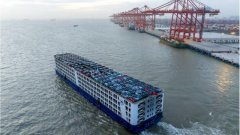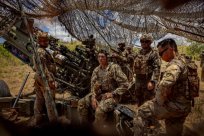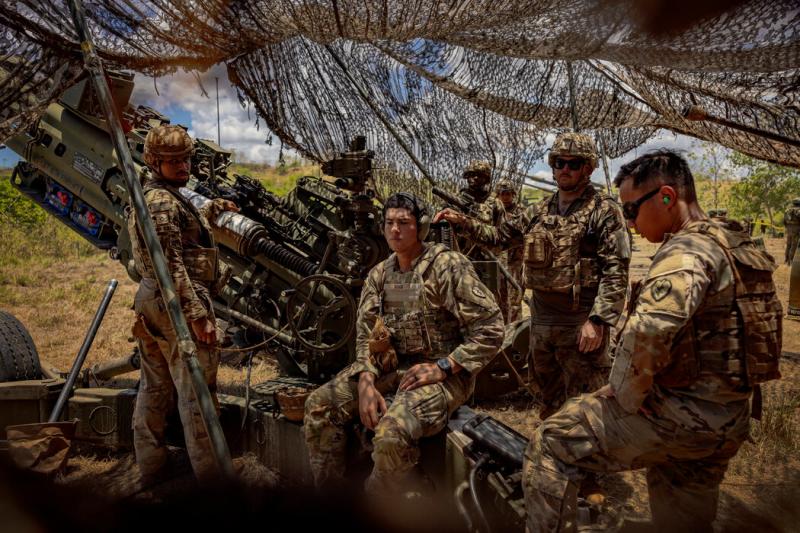
When the Seven -Kinged Group composed of a wealthy and democratic country, the Seventh -way Group gathered in Italy to discuss a series of difficult and deep -rooted challenges, and the nature of American power is changing in the Asia -Pacific region. In the eyes of Washington, the region isIt is important for the next century.
In this area, the United States is no longer a self -confidence security guarantee, and is no longer a superpower that "believes in the United States, there is a way in the United States".It is too vast here, and the rise of China is a huge threat to the United States.Therefore, the United States proposed an enthusiastic teammate who played another role -military modernization and technological development.
"In the past, American experts talked about the axial spoke model of the security of the Indo -Pacific region," said at a global defense conference held at Singapore this month at a global defense conference in Singapore."Today, the United States has seen a completely different situation."
In this new era, many countries are doing more things, whether it is alone or with the help of the United States.For the first time in the United States, it cooperated with Australia to build nuclear -powered submarines; South Korea was invited to participate in nuclear weapons planning; cooperated with India to produce fighter engines; sharing maritime surveillance tasks with some small Pacific island countries; cooperation with Japan to increase offensive attack capabilities.
Behind the scenes, US officials are still testing a new security communication system with partners.They are signing an agreement to jointly produce artillery with allies and ensure that they can obtain blood supply from hospitals across the region when conflicting.They are still training with more countries in a wider way.
These cooperation highlights the region's view of China.Many countries are worried about China's growing military strength and good behaviors, including threats on democratic islands Taiwan, sovereignty requirements for most of the South China Sea, and grabbing territories at the junction with India.As China slows down during the post -epidemic period, their confidence in China as an economic partner has also discounted.
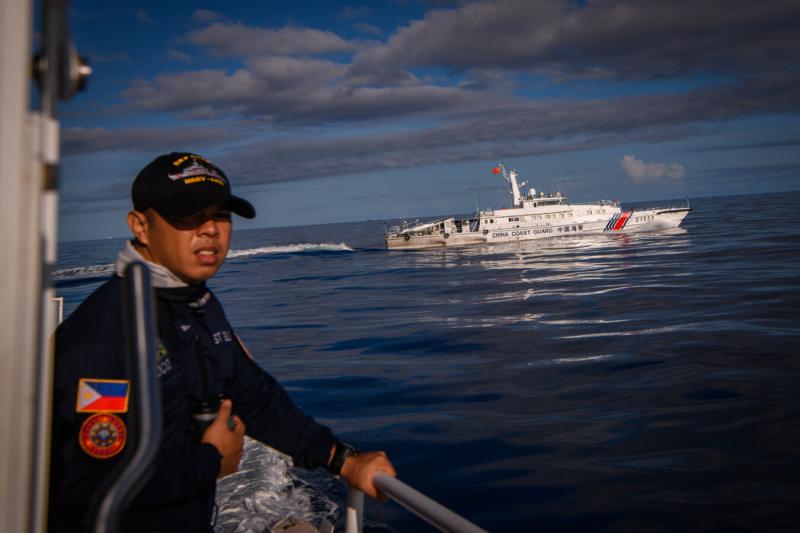
But those countries that work with the United States really put long -term bets on the United States rather than China?Still they recognize the continuous enhancement of their own strength, and behave like a pragmatism. From a more and more voters who want to stay away from world affairs, they can get what they can get from the unstable superpowers?
In the past year, more than 100 current and former officials in the United States and Indo -Pacific countries have been interviewed. Many of them said that the leading position of the United States in the next century is likely not as good as the last century.They said that no matter who won the next or later elections, the country that has to maintain the world order today has been weakened by the Iraqi War and the Rise of Afghanistan, the rise of China's rise on its domestic manufacturing industry, and the internal division of the United States.
The world is also changing, and more and more countries have the ability to develop around.With the United States sharing sensitive technologies and prioritizing teamwork, many people think they are witnessing the evolution of global reshuffle and the evolution of the United States.
They believe that the United States is currently adapted to a more polarized world.The United States is learning to cooperate in a way that Washington politicians who adhere to the United States have never discussed, and acknowledge that the United States has greater demand, and it needs to be more humble.
The decline of the United States
The United States is no longer as high as in the past.
Since World War II, the United States' share in the global economy has been halved.This is mainly due to the steady rise of the Asian economy.In China alone, it has produced about 35%of the world's manufacturing products, which is three times that of the United States.Japan, India, and South Korea have also added the top seven of the output ranking, making Asia's industrial strength surpassing other parts of the world.
The military advantage of the United States has been better maintained, but China, which has less budget and more focused on the Indo -Pacific region, now has more naval ships.The factory can expand military production when necessary.
From the decrease in the number of bills signed by the president alone, the United States democracy is not the same as before.The Republican Party has repeatedly delayed the budget and allowed the president to abandon overseas. In addition, it also delayed assistance to partners such as Ukraine and Taiwan.Recent polls show that most Republicans hope that the United States should not play such a positive role when solving world problems.
However, both parties suffer from how to deal with and discuss the changing strength of Asia and the limitations of the United States.
"This can be traced back to several governments," said James Jones, a retired naval Marine Corps, who had served as a national security adviser during President Obama."For a long period of time, the United States has sent a contradictory message."
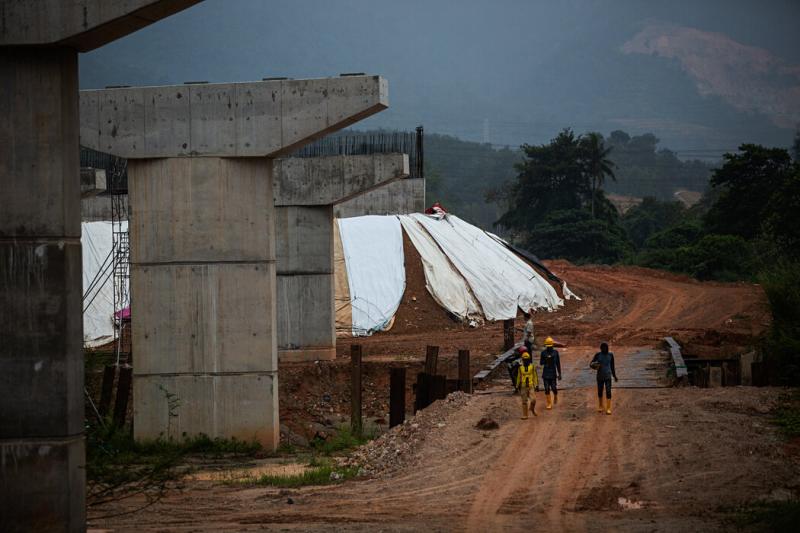
The "return to Asia" promised by the Obama government seems to have never been realized.The Trump administration's foreign policy was mixed with anti -China attack and abandoned an important cross -Pacific free trade agreement, which seemed to be uneasy to the United States about challenges from Beijing in some countries.
China has become an economic giant, and is the most important trading partner and major investor in the Indo -Pacific region.
Over the past few decades, millions of new middle -class consumers have appeared in various countries in the region, which has expanded advanced industrial production, promoted the surge in regional trade, reduced the importance of the US market.More Asian countries have established a closer connection.
These wider trends have spawned confidence and anxiety.In recent years, military budgets in Asian countries have surged, and the demand for US defense technology has also increased unprecedentedly.
However, many countries in the region now believe that they are participants in emerging and multi -polar order.Philippine President Ferdinand Magos said a keynote speech at the Singapore conference: "In this collective story in the United States, the United States is the protagonist." Therefore, when they ask the United States for help, it is better to say that the United States is a protector.(Weapon), service (training) and investment (new technology and equipment maintenance) providers.
Japan's transformation is the most obvious.From the ease of tension with South Korea, from decades of peacefulism, the plan has greatly increased its military budget to signing an agreement with Australia and other countries.Leading.But even if Washington welcomes Tokyo's actions, Tokyo's actions stem from critical assessment of the United States.
When holding a joint exercise with the U.S. Air Force last year with the US Air Force, Japanese commanders said that they want to become more active, because Japan's neighbors want Japan to do more, which means that people generally recognize that the future role of the United States is full of full characters full of characters.Uncertainty.
"The United States is no longer 20 years ago and 30 years ago," said a Japanese senior intelligence official who did not want to disclose the name and avoid offending US officials."This is the fact."
He also said, "No matter who the next president is, the role of the United States will be relatively weakened."
Adjust the United States
U.S. officials are aware of the world's doubts.When I learned that some Asian officials saw humility from the US response, some officials in Washington could not help but frowned, as if lemon juice was entered in their eyes.This sounds too weak.
However, some leaders of the Pentagon have publicly stated that they should seek to "share everything together" with partners -joint development, joint production, and joint maintenance.Although American officials have been talking about the issues of alliance in Asia for decades, their tone and behavior in the past few yearsThe movement shows a subtle transformation, that is, we adopt a more decentralized method on security issues, and more frankly express their concerns.
Secretary of State Brills made a speech in September last year, calling on foreign policies to be more modest to cope with "challenges that cannot respond alone in any country."
General David Berje, the highest general of the Marine Corps, proposed a comprehensive plan in 2019 before retiring last year. By reintering the US military's strength in Asia to fight against China, the U.S. military shifted to a smaller scale.Forces, these troops are now more mobile and flexible and can enter the bases of many countries.
In Singapore, a senior national defense official said that this plan involves stronger countries to strengthen its own investment, launch cross -regional cooperation, and cooperate with the United States that does not have to live in the central position in each relationship.
At present, in large multi -national military exercises and small projects, we can see the clue of the United States lowering its body. The previous one is to make other countries play a greater role.Fusion center.The center is a data center for maritime analysis from various threats such as illegal fishing to Chinese occupation. It was a more American action at the beginning. Until the request of local partners to play a role, U.S. officials conceded and asked them to participate.
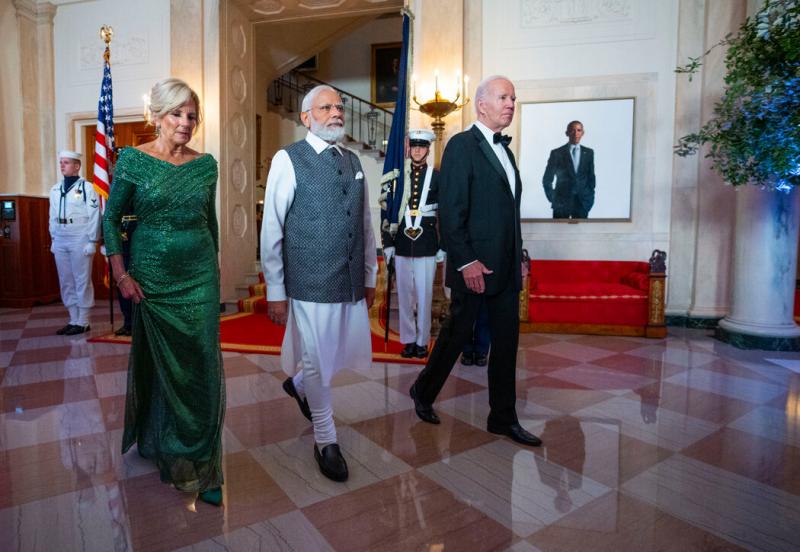
Through the United States and India relations, we can see that the American tadpoles become more rich.The United States has always been interested in closely cooperating with the increasingly confident New Delhi through a long -term and comprehensive plan, even if it means to lower concerns about Indian democracy.
Some Indian officials said in an interview that a turning point was in August 2021. When the United States withdrew from Afghanistan from Afghanistan, it left a shocking chaotic scene, which showed that more participation in the region may be helpful.
A senior Indian diplomat said: "There was almost no consultation in the United States before withdrawal, and it started to do more after withdrew."
At the conference held in the US Embassy in New Delhi, in the context of Congress on the context of the attack on the attack on the Capitol on January 6, the attitude of American officials eased.What is common.The two countries' diplomats stated that the concerns of the Indian government's preaching Indian nationalism or suppressing unusual suppression have been diluted: "The United States faces many common problems -extremeism, hatred speech, false information. How do you deal with it?"
As U.S. officials talk about the changes in their own countries, their understanding of India is also expanding: India is not only a huge market with the most population in the world, but also a multiplier of innovation.
There are more than 1.4 million engineers cultivated in India each year, which is comparable to China.When the United States began to worry about China's progress in electric vehicles, missiles, quantum computing and other technologies, India could provide a talent pool to help the United States keep up with China.
During the state visit to Washington in 2023, the Indian Prime Minister Modi reached a protocol focusing on strategic defense and technology.
The most exciting thing about New Delhi is the joint production fighter engine, which is the technology it has been seeking for many years.However, the White House emphasized in the statement that the two countries' joint investment from nuclear energy to micro -chip and other fields. The cooperative relationship of "from the ocean to the Star" "will touch all aspects of human business."
retired diplomats, former US retired diplomats in Afghanistan, Iraq, Pakistan, Syria, Kuwait, and Lebanon Ambassador, said that with the promotion of other countries, the United States may finally understand a humble attitude to have a huge effect.Essence
"The humility to a certain degree does not mean weakness," he said."The United States can't do everything, and it should not be a big deal. The United States has these relationships and alliances, so that the United States can figure out who to do it."
Risk of Action in the United States
When talking about the United States in national defense leaders in the Philippines, Japan, India, Australia, and other countries, there is often a feeling of being happy to visit the market in listening to customers.
Under the leadership of President Biden, the United States has been selling and providing assistance.It provides Tomahawk missiles to Japan.Provide coastal guards to Vietnam.Palau improved the runway for the island nation with excellent geographical location.Provide training for each party that seems to be requested in Asia.
Will these generous generosity dangerous?
Some analysts are worried that the United States tries to spread these items to a world that is increasingly separated, adding sensitive contact with Chinese marginal policies, making the risk of upgrading the misunderstanding to conflict greatly.
Mike M. Michael D. Swen, two national defense researchers in Washington, wrote in an article recently written for the New York Times: "Washington's pursuit of increasingly complex security relationships is a dangerous game."
Obviously, Beijing is unhappy with the growth of American partnerships.
At the Singapore conference held in early June, the Minister of Defense Dong Jun criticized its so -called "exclusive military alliance", saying that it "cannot make the United States more secure."
However, if there is a risk of doing too much alliance in the United States and may cause conflict, another risk may be that the United States has not received enough support from its partners.
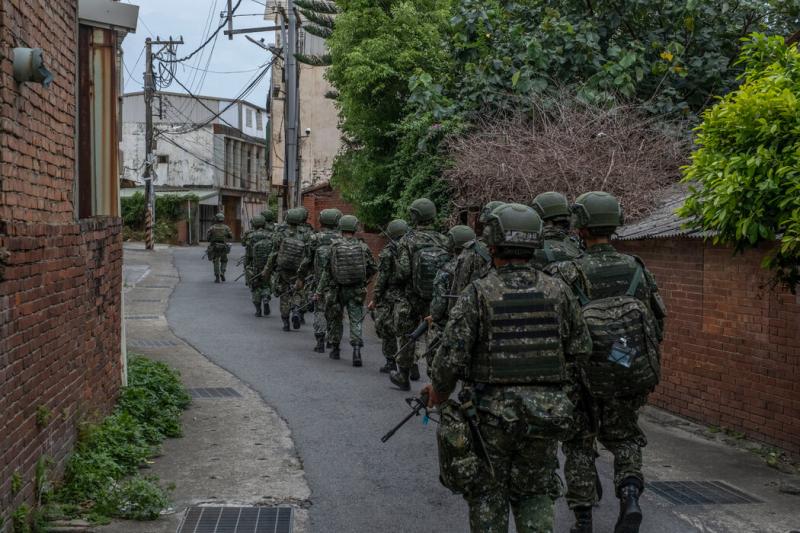
The strength of the United States in Asia is increasingly defined by various alliances, and there are many vague places in these alliances.If the Philippines accidentally falls into a violent conflict in the South China Sea, how will the region respond?Or, if the war around Taiwan, Taiwan is the center of the global chip business, China believes that Taiwan is its own loss -will the countries that jointly develop military equipment with the United States or welcome the runway to extend the runway really take action immediately?
It is unclear how Washington itself will deal with China's invasion.Many people believe that this uncertainty is exactly what countries are urgently wanted to understand when they are close to the United States.
"In the more than 40 years I have known the United States, I have witnessed the trough of the United States' excessive self -criticism and the arrogance of a wave of waves."Xikan said."People should not mistakenly think that any of these two situations is permanent."
He added that the challenges facing Asia and the world are that the more the United States has fallen into dysfunction, but "still indispensable": No country is paid like the United States to maintain the order required by other countries and economies.More effort.
Different in the past, more and more US officials now admit that more assistance is needed, not just from familiar allies.In this era of confusing challenges -Gasha, Ukraine, China, North Korea, epidemic, climate change, artificial intelligence, nuclear weapons -their work now includes others believe that humility can become the United States like confidence in the United StatesFeatures, and humility is a strategy that will continue to continue to be the president.
In April this year, during an event held in Australia, General Navy John Aquilino was at the time of the commander of the Pacific Command in the United States and India.When he was like, he did not mention the aircraft carrier, but only mentioned allies.
"My a lot of time is either spending on calling and sending emails, or spending on a plane to visit my partners," he said.
He added that he and many officials in the area could quickly contact each other.

